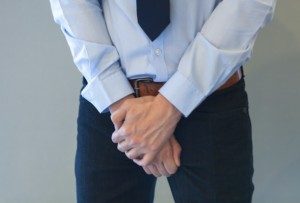 There is nothing quite as alarming as suddenly feeling that urge to run to the rest room at the most inopportune time. Especially if you are nowhere near a bathroom.
There is nothing quite as alarming as suddenly feeling that urge to run to the rest room at the most inopportune time. Especially if you are nowhere near a bathroom.
While experiencing the urge to urinate more often is normal and even expected if you’ve been drinking large quantities of liquid, especially carbonated drinks containing artificial sweeteners, coffee/tea with caffeine, or alcohol. Even some foods — like tomatoes, citrus fruits, and cranberries — might even make you take more trips to the bathroom.
When do you actually classify as having an overactive bladder?
If you feel the need to urinate more than 8 times in any 24 hour period, your bladder may be considered overactive. Taking constant trips to the bathroom throughout the day, regardless of fluid intake, may be a sign of OAB. Some might experience a full bladder feeling, yet only a small amount of urine is passed; others may even experience incontinence or leakage.
33 million Americans have overactive bladders. As many as 30% of men — and 40% of women – in the U.S. live with OAB symptoms. This is according to the newest data from the American Urological Association.
OAB can be embarrassing and anxiety provoking. It may also affect your sleep if you’re waking up two or more times each night to urinate; sleep disruptions over time can be harmful to your health and overall well-being.
If you’re experiencing symptoms, it’s important to consult a urologist. Exploring treatment options with a knowledgeable doctor can provide a boost in your quality of life. Involuntary contractions of the bladder may be the result of an underlying health condition, such as diabetes, an enlarged prostate, or bladder stones.
Tracking food and drink intake can help you to get a handle on what provokes a urinary response and from there you can adjust accordingly.
It’s worth noting that so-called “stress urinary incontinence” is different than OAB, and typically involves the expulsion of small amounts of urine while sneezing, laughing, or doing physically demanding activities.
Dr. Harry Tsai of Fort Meyers Urology, with offices in Fort Meyers and Cape Coral, is a member of the Independent Physicians Association of Lee County — a network of independent physicians committed to maintaining high-quality medical care in southwest Florida. For help selecting an independent physician or for more information on IPALC, call 239-314-0791 or visit the organization’s website.